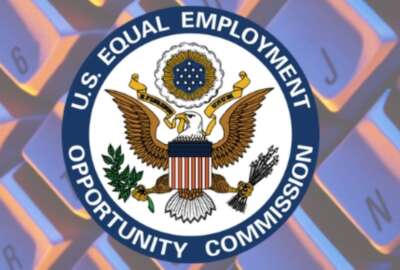First Look
House, Senate Democrats urge Biden to bump civilian federal pay raise up to 4.5%
Lawmakers called for a 4.5% federal pay raise to align with the military’s expected 2025 raise. Currently, civilian feds are likely to get a 2% raise next year.
With just a few weeks left in the year for President Joe Biden to finalize the 2025 federal pay raise, House and Senate Democrats are calling for a larger pay boost than the currently planned raise for civilian federal employees on the General Schedule.
In a letter sent to Biden Wednesday morning, a group of 27 Democrats pushed for what they said should be “pay parity” between civilian and military federal employees. Currently, civilian and military personnel are slated for likely different pay raises for 2025.
“We believe it is imperative you revise your budget to align military and civilian employee pay raises,” the lawmakers, led by Sens. Tim Kaine (D-Va.) and Mark Warner (D-Va.), and Rep. Steny Hoyer (D-Md.), wrote in the letter, shared with Federal News Network.
Currently, most civilian employees are on track to receive a 2% federal pay raise beginning in January, according to the alternative pay plan Biden sent to congressional leaders in August. In contrast, military personnel are expected to likely receive a 4.5% raise for 2025. Although the raise amounts appear to be heading in those two directions, neither raise amount is final just yet. Unless Congress or Biden opts for a different pay plan, the 2% raise is expected to become final through signing an executive order by the end of December.
But in their letter Wednesday morning, the lawmakers urged Biden to revise his alternative pay plan to include a 4.5% raise recommendation for military and civilian employees alike.
“Our nation’s service members and civilian employees both work tirelessly to keep us safe and run the critical operations of the government,” the lawmakers wrote to Biden. “By aligning military and civilian pay raises for 2025, you will recognize the efforts of the entire federal workforce.”
The Office of Management and Budget did not immediately respond to Federal News Network’s request for comment on if there are any plans underway to adjust the 2025 federal pay raise for civilian personnel. So far, there has not been any public indication of a number other than the currently planned 2% raise.
The annual civilian and military pay raises are aligned most, but not all, of the time. In their letter, the lawmakers noted that over the last 20 years, administrations of both parties have usually opted to maintain federal pay parity between civilian and military personnel.
The planned federal pay raise for 2025 would be more modest than this year’s raise, in part due to the budget constraints that were set as part of the Fiscal Responsibility Act. Some agencies have also cited budget challenges that come along with the implementation of the higher 5.2% average raise feds received for 2024.
A president sending an alternative pay plan to Congress late in the year is uncommon, but not unprecedented. The lawmakers pointed to an instance in 2016 when then-President Barack Obama submitted an alternative pay plan in early December, recommending an equal pay increase between military and civilian government workers.
“We implore you to move swiftly to submit a revised alternative pay plan that supports our entire federal workforce,” the lawmakers wrote to Biden this week.
The 2% federal pay raise proposal that was originally included in the Biden administration’s fiscal 2025 budget request received criticism from federal unions and other employee organizations. Many groups have pushed instead for a larger raise amount for 2025. The 2% recommendation also falls short of the 7.4% raise included in the FAIR Act, which Rep. Gerry Connolly (D-Va.) and Sen. Brian Schatz (D-Hawaii) reintroduced in January.
As rationale for a larger raise, the National Treasury Employees Union pointed to a recent report from the Federal Salary Council, which found that federal pay rates are falling nearly 25% short of the private sector for comparable occupations.
“It is a loss to our country when highly qualified professionals turn away from critical public service jobs because the paychecks can’t keep up with for-profit corporations,” NTEU National President Doreen Greenwald, who is a council member, said in November. “We call on Congress and the White House to make sure federal salaries don’t lose ground in 2025.”
Copyright © 2025 Federal News Network. All rights reserved. This website is not intended for users located within the European Economic Area.
Drew Friedman is a workforce, pay and benefits reporter for Federal News Network.
Follow @dfriedmanWFED






